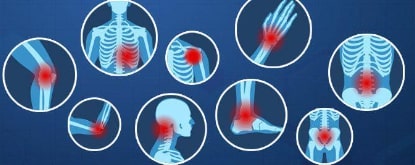Autoimmune rheumatic diseases, also known as autoimmune connective tissue diseases, are a group of disorders characterized by the immune system attacking the body's own tissues, particularly the connective tissues such as joints, muscles, skin, and blood vessels. These diseases can affect multiple organs and systems throughout the body, leading to a wide range of symptoms and complications.
Some of the most common autoimmune rheumatic diseases include:
RA is a chronic autoimmune disorder that primarily affects the joints, causing inflammation, pain, stiffness, and swelling. It commonly affects small joints in the hands and feet but can also involve other joints and organs.
Lupus is a systemic autoimmune disease that can affect various organs and tissues, including the skin, joints, kidneys, heart, lungs, and central nervous system. Symptoms can range from mild to severe and may include joint pain, skin rashes, fatigue, fever, and organ inflammation.
Sjögren's syndrome is an autoimmune disorder characterized by inflammation of the glands that produce tears and saliva, leading to dry eyes and mouth. It can also affect other organs such as the joints, lungs, kidneys, and nervous system.
Scleroderma is a rare autoimmune disease that causes the hardening and tightening of the skin and connective tissues. It can also affect internal organs such as the lungs, heart, kidneys, and digestive system.
Polymyositis and dermatomyositis are autoimmune diseases that cause inflammation and weakness in the muscles. In dermatomyositis, skin rash is also a prominent feature.
Ankylosing spondylitis is a type of inflammatory arthritis that primarily affects the spine and sacroiliac joints, leading to stiffness, pain, and eventually fusion of the vertebrae.
In cases of severe OA where conservative treatments are ineffective and joint damage is extensive, joint replacement surgery (e.g., knee or hip replacement) may be recommended to relieve pain and restore function.

